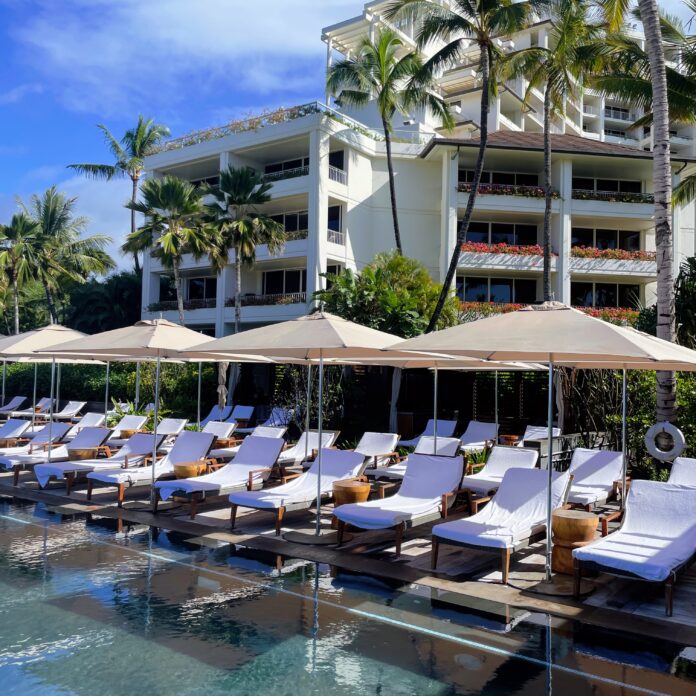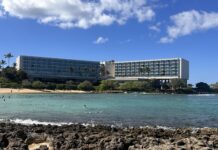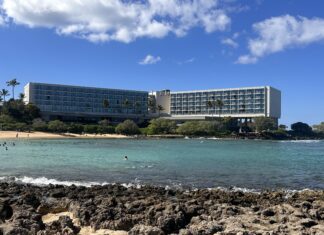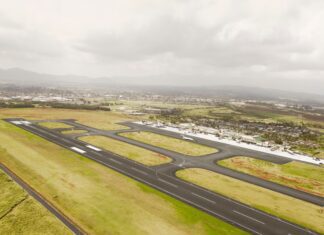Growing up on O’ahu and reviewing dozens of hotels across the island, I’ve come to realize that the question “Where should I stay on Oʻahu?” doesn’t have a one-size-fits-all answer.
On its own, the question means well, but it’s a terrible question in practice. And I see it on social media all. the. time. Even worse, people recommend a specific place without knowing a single thing about the OP, Good lord.
The right area really depends on what kind of Hawaiʻi experience you’re looking for — whether that’s the energy of Waikīkī, the calm resort vibe of Ko Olina, or the laid-back rhythm of the North Shore.
I’ve stayed in nearly every corner of the island, from beachfront resorts in Waikīkī to a quiet lagoonfront room in Ko Olina. That’s why I wanted to create this local guide — to help you understand the island’s main regions before you book. Once you know which area fits your travel style, it becomes much easier to narrow down the perfect hotel or resort.
If you’re still comparing islands, I’ve also written a full breakdown of the best places to stay across Hawaiʻi, where I share my favorite spots on Maui, Kauaʻi, and the Big Island too. But if you’ve already chosen Oʻahu, let’s dive into how each region — Waikīkī, Ko Olina, and the North Shore — offers a different side of the island to explore.
Understanding Oʻahu’s Layout (and Why Location Matters)
One of the biggest mistakes I see visitors make is assuming Oʻahu is small enough that you can stay anywhere and easily reach everything. In reality, traffic, geography, and even microclimates can make a big difference in how your trip feels. Knowing the island’s layout helps you pick the area that fits your style and pace.
Oʻahu is shaped a bit like a tilted diamond, with Honolulu and Waikīkī on the south shore, Ko Olina on the west (leeward) side, and the North Shore stretching along the top edge. Each region has its own rhythm: Waikīkī is lively and walkable, Ko Olina is calm and curated, and the North Shore feels worlds away from city life.
If you’re flying into Honolulu International Airport (HNL), it’s good to note that:
Waikīkī is about 25 minutes away, but during peak commute times it can be 45 minutes to an 1 hour, depending on traffic.
Ko Olina takes around 35–45 minutes to reach on a good day. Traffic in this direction is legendary during peak commute times, 1 stalled car and its over an hour.
The North Shore is about an hour’s drive, though it can take longer during surf season. If a big swell is hitting the shoreline, go to the bathroom first and pack some snacks, its a two-lane road.
That drive-time difference might not sound like much, but it really shapes your trip. If you plan to spend time exploring Pearl Harbor, downtown Honolulu, or the east coast, staying in Waikīkī makes life easy. If you’re all about pool days, sunsets, and quiet beaches, Ko Olina fits better. And if you want to wake up to the sound of waves and chase surf breaks, the North Shore delivers every time.
I’ll break down each of these regions next — what they’re really like, who they’re best for, and which hotels stand out in each area.
Waikīkī: The Classic Oʻahu Experience
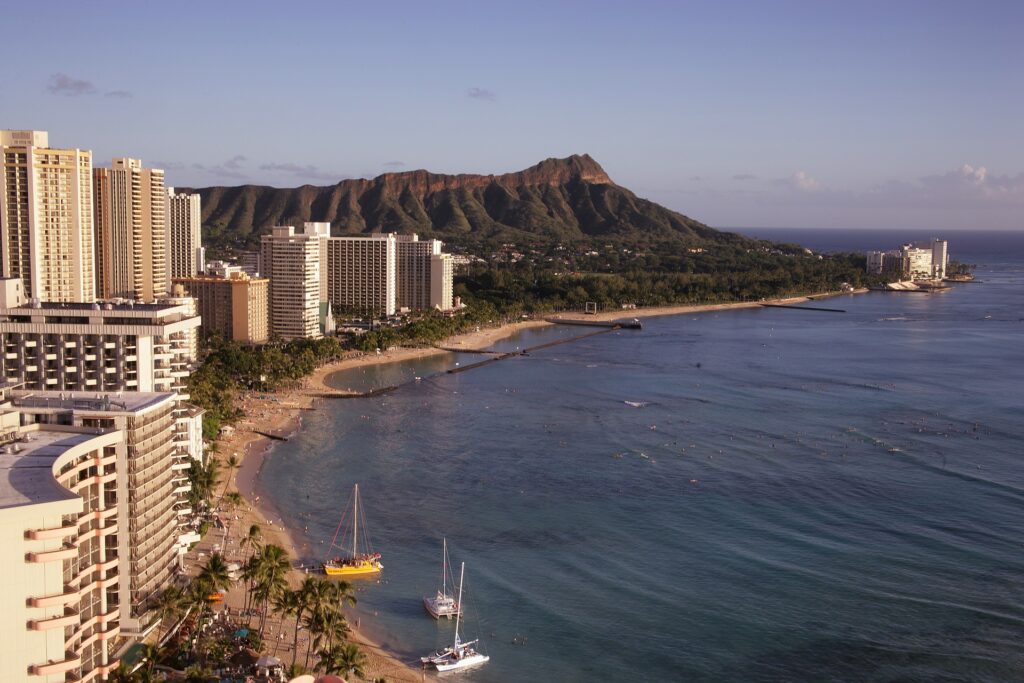
If you’ve ever seen a photo of Honolulu’s skyline with Diamond Head in the background, you’ve seen Waikīkī. It’s Oʻahu’s heart — a busy, walkable beachfront neighborhood packed with hotels, restaurants, and shops.
Some locals find it too crowded, but I always tell first-time visitors that staying in Waikīkī is the easiest way to experience the best of Oʻahu without needing a car every day.
You will find many people online saying skip Waikiki or that its not the “real” Hawai’i. Ignore them, make the decision on your own. I really enjoy Waikiki.
Waikīkī is built around convenience. You can stroll from your hotel to the beach, grab poke from a nearby food hall, and be back in time for sunset mai tais. Most tours and activities on the island also pick up here, which makes it a great base if you plan to explore without driving much.
From a hotel perspective, Waikīkī has the widest range of choices anywhere in Hawaiʻi. You’ll find five-star beachfront icons like the Halekulani and Royal Hawaiian, stylish midrange spots like the Outrigger Waikīkī Beachcomber, and plenty of smaller boutique hotels tucked along Kuhio Avenue. I’ve reviewed several of these properties over the years, and each offers something a little different depending on what kind of traveler you are.
If you’re looking for nightlife, dining variety, and easy access to tours and beaches, Waikīkī is hard to beat. Just be ready for crowds, limited parking, and resort fees — it’s the price you pay for convenience and ocean views.
Waikīkī Pros:
Walkable and safe, with tons of restaurants and shopping
Steps from the beach and close to major attractions
Great public transit and tour pickup access
Waikīkī Cons:
Can be crowded and noisy, especially near Kalākaua Avenue
Parking is limited and expensive
Feels more urban than “island escape”
Ko Olina: The Resort Getaway
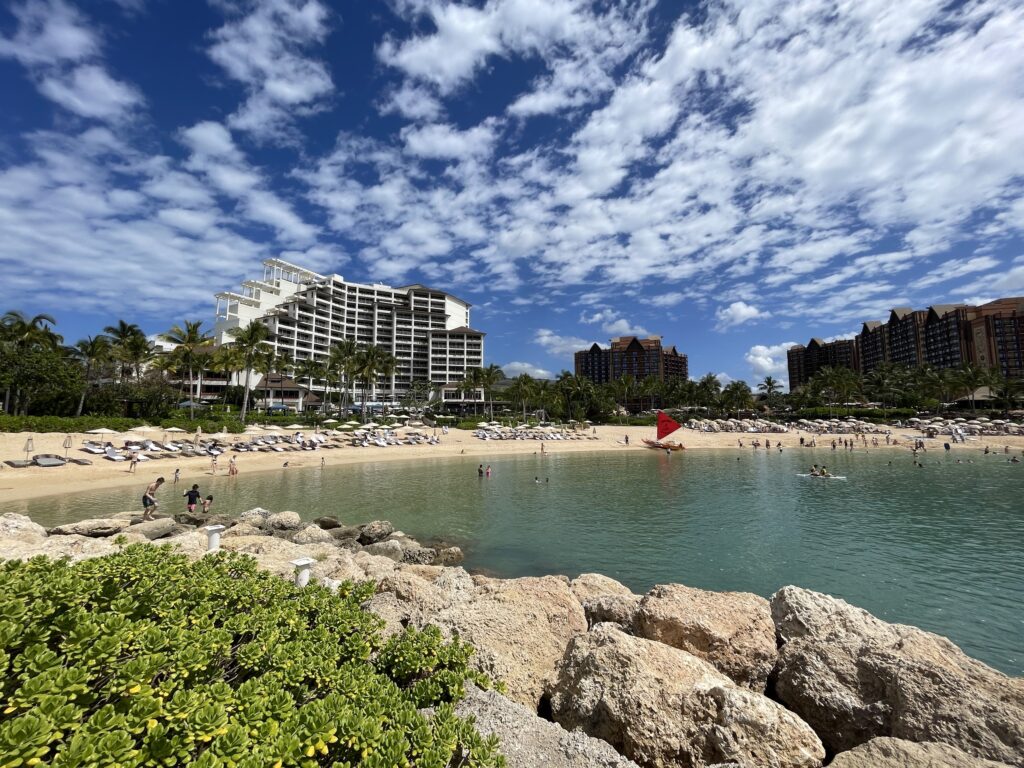
About 30 miles west of Honolulu, Ko Olina feels like a completely different island. Whenever I head out that way, the city buzz fades, traffic thins, and you start to feel the slower rhythm of Oʻahu’s leeward coast.
The area was purpose-built as a master-planned resort community, but it manages to blend comfort and calm in a way that appeals to families, honeymooners, and anyone who wants a quieter, more all-inclusive experience.
Ko Olina is known for its four man-made lagoons — calm, crescent-shaped beaches that are perfect for swimming, paddleboarding, or just floating all day. It’s also one of the best places on Oʻahu for sunsets, with golden skies almost every evening. The weather here is generally sunnier and drier than Honolulu, which makes it an easy choice if you’re visiting during winter months when the windward side can be rainier.
Most travelers come to Ko Olina for the resorts themselves. The Four Seasons Resort Oʻahu at Ko Olina and Aulani, A Disney Resort & Spa anchor the area, offering a full resort experience with pools, spas, and beachfront dining. There are also vacation rentals and the Ko Olina Beach Villas, which work well for longer stays or larger groups.
The trade-off is that Ko Olina is somewhat isolated — there’s no walkable “town” area, but the resort does have wonderful walking paths along the water and near the golf course — perfect for an early morning stroll or sunset walk.
Dining options are more limited than in Waikīkī, though nearby resorts offer several good restaurants, and Kapolei, just a short drive away, continues to grow with new places to eat. Personally, I love it for a few nights when I want to unwind, especially if I’m planning to spend time in the water or just enjoy a true resort reset.
Ko Olina Pros:
Relaxed, uncrowded beaches and perfect sunset views
Excellent resort amenities and family-friendly options
Sunnier, drier weather year-round
Ko Olina Cons:
Limited dining and nightlife outside the resorts
Farther from attractions like Pearl Harbor or Diamond Head
You’ll likely need a rental car for exploring beyond the lagoons
There is some great snorkeling on this side of the island but snorkeling tours tend to book our early, make your reservations ahead of time.
North Shore: Laid-Back and Local
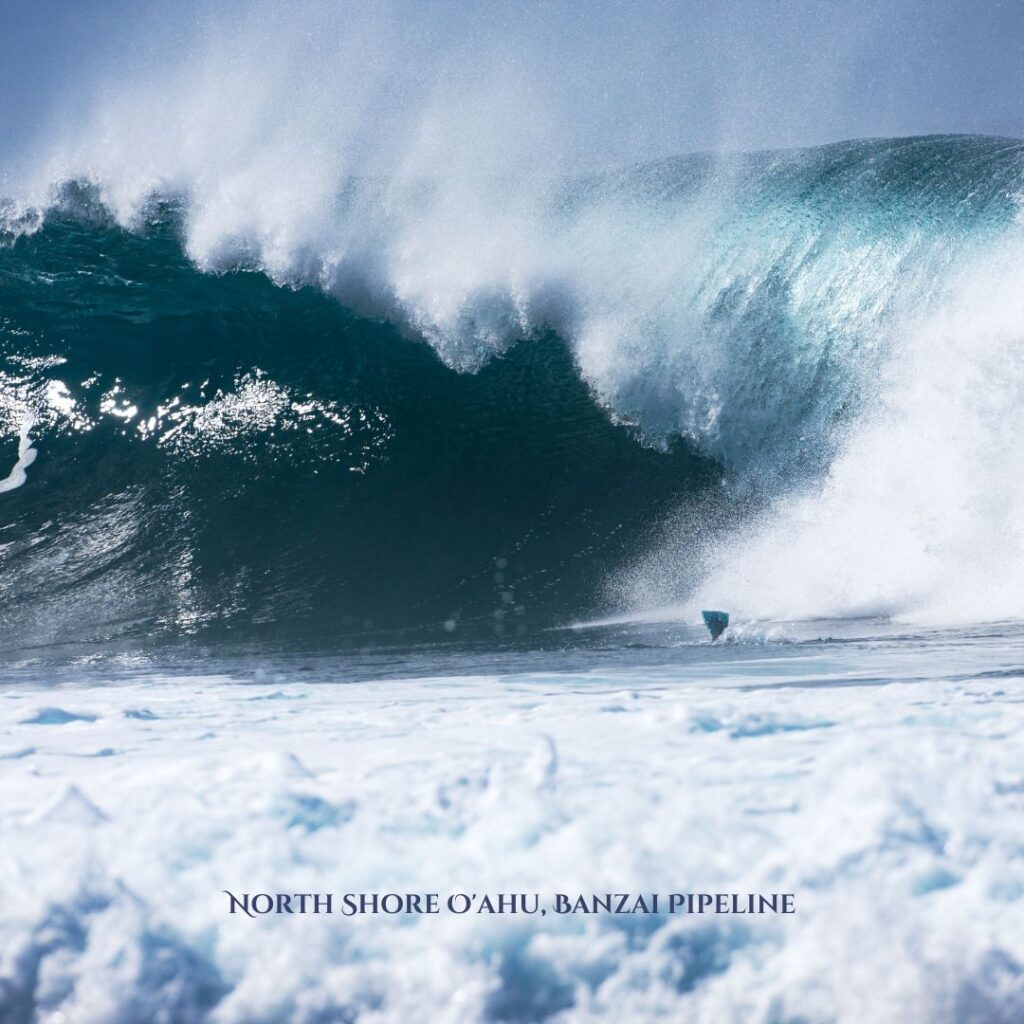
The North Shore is the side of Oʻahu that most people dream about — long stretches of golden sand, big winter waves, and a slower, more authentic rhythm that feels worlds away from Honolulu. Whenever I head up there, I’m reminded why locals and repeat visitors love this part of the island: life moves slower, the beaches are quieter, and there’s a real sense of community.
If Waikīkī is about convenience and Ko Olina is about comfort, the North Shore is about connection — with nature, with surf culture, and with the island’s local side. The area runs roughly from Haleʻiwa in the west to Kahuku on the northeast tip, a scenic stretch lined with surf spots like Pipeline, Sunset Beach, and Waimea Bay.
Accommodations are more limited here, which is part of the charm. The standout option is The Ritz Carlton Oahu Turtle Bay Resort, recently renovated and set on a stunning peninsula with ocean views in nearly every direction. It’s easily one of my favorite places to stay on the island — not just for the resort itself, but for its location.
I’ve stayed here when it was named Kuilima Resort and then Turtle Bay Resort, yep, a while back.
You can drive a few minutes to Haleʻiwa Town for shrimp trucks, grab an açai bowl from a roadside stand, or spend the day exploring hidden beaches along the coast. Just down the road in Laie is the Marriott Courtyard Northshore which is great for families and a little easier on the pocketbook.
For travelers who prefer a more local stay, there are also a few vacation rentals and boutique options near Pupukea or Kawela Bay. Just keep in mind that during the winter surf season (November to February), ocean conditions can be rough — great for watching pros at Pipeline, not so great for swimming.
North Shore Pros:
Authentic, small-town feel and local charm
Access to world-famous surf spots and scenic drives
Quiet beaches and relaxed pace
North Shore Cons:
Limited accommodation and dining options
Longer drive to Honolulu and the airport
Ocean conditions can be unpredictable in winter
For me, the North Shore is best suited to travelers who value peace, scenery, and authenticity over nightlife or luxury amenities. It’s a completely different side of Oʻahu — one that rewards slowing down.
Here are the 10 best things to do on O’ahu along with 50 free and cheap things to do on O’ahu.
How to Choose the Right Area of O’ahu for Your Trip
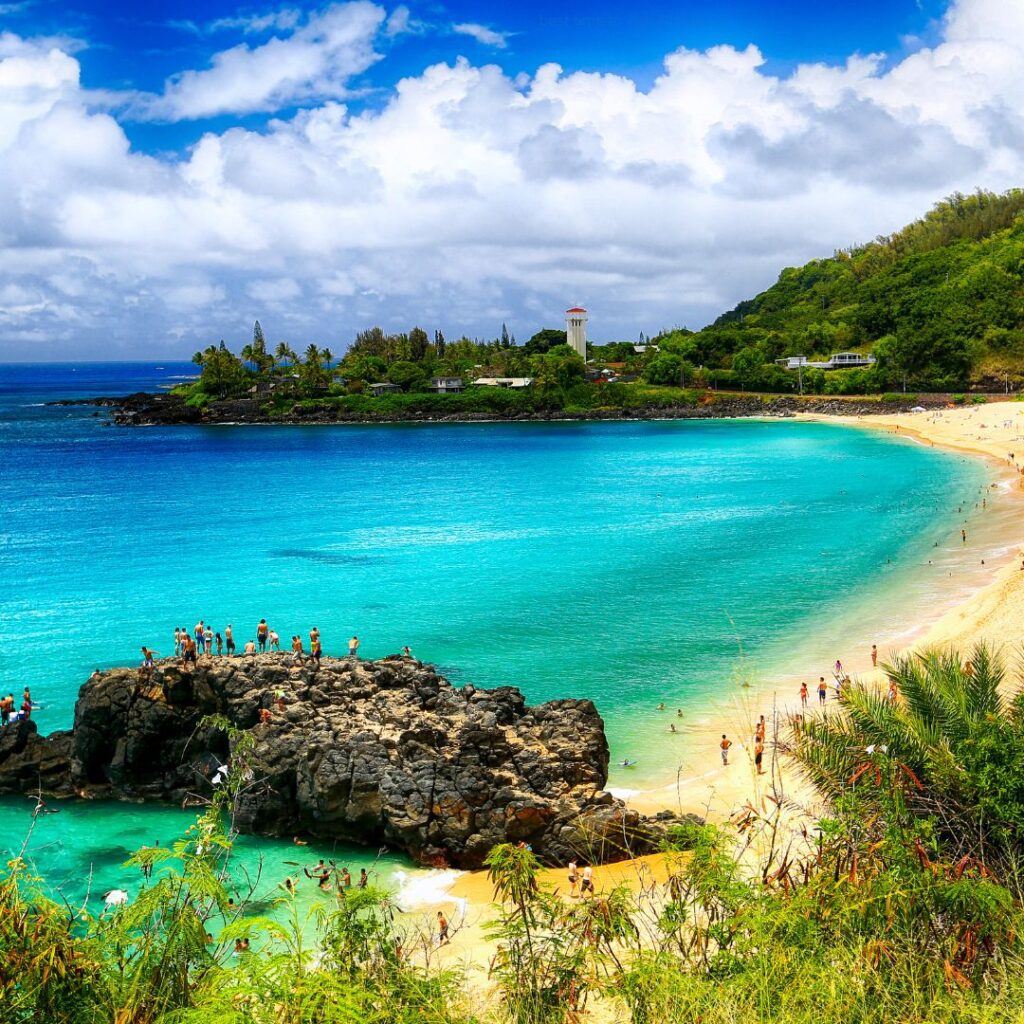
Now that you’ve got a sense of what each part of Oʻahu offers, the next step is figuring out which area fits your travel style. Over the years, I’ve noticed that the best stays aren’t just about finding the nicest hotel — they’re about matching your vibe to the right side of the island.
Here’s how I usually help friends (and readers) decide where to stay on Oʻahu:
First-time visitors: Start in Waikīkī. It’s close to everything — beaches, restaurants, tours, and shopping — and gives you an easy way to see the island without needing a rental car right away.
Families or honeymooners: Choose Ko Olina if you want a more relaxed resort atmosphere, calm lagoons, and reliable weather. It’s peaceful, easy for kids, and ideal if your main goal is to unwind.
Adventure seekers or repeat visitors: Head for the North Shore. You’ll trade nightlife for nature, and convenience for authenticity — but that’s exactly why so many people fall in love with it.
If you’re planning a longer trip, one of my favorite approaches is to split your stay — a few nights in Waikīkī to enjoy the restaurants and nightlife, then a few nights in Ko Olina or the North Shore for a quieter finish. It’s a great way to experience both sides of the island without feeling rushed.
If you are open to all these locations and its really about the hotel, consider these lists of hotels of which I have personally reviewed several.
When deciding, consider these practical factors too:
Drive times: Oʻahu traffic can be real, especially during weekday rush hours. Staying closer to where you’ll spend the most time saves a lot of frustration.
Parking and resort fees: Expect these in Waikīkī and Ko Olina; the North Shore is usually more relaxed about parking.
Dining access: Waikīkī offers endless options, while Ko Olina and the North Shore are more limited — plan ahead for meals if you don’t want to drive far.
If you’re still torn, I’d suggest starting with what kind of pace you want your trip to have — fast and full of things to do, or slow and focused on relaxation. Once that’s clear, Oʻahu makes it easy to find a perfect match.
| Region | Best For | Vibe | Key Hotels | Distance from Airport |
|---|---|---|---|---|
| Waikīkī | First-timers, nightlife | Lively, urban beach | Halekulani, Outrigger | ~25 min |
| Ko Olina | Families, honeymooners | Calm, resort-style | Aulani, Four Seasons | ~40 min |
| North Shore | Surfers, repeat visitors | Local, scenic, quiet | Turtle Bay Resort | ~60 min |
Local Tips for Booking and Timing
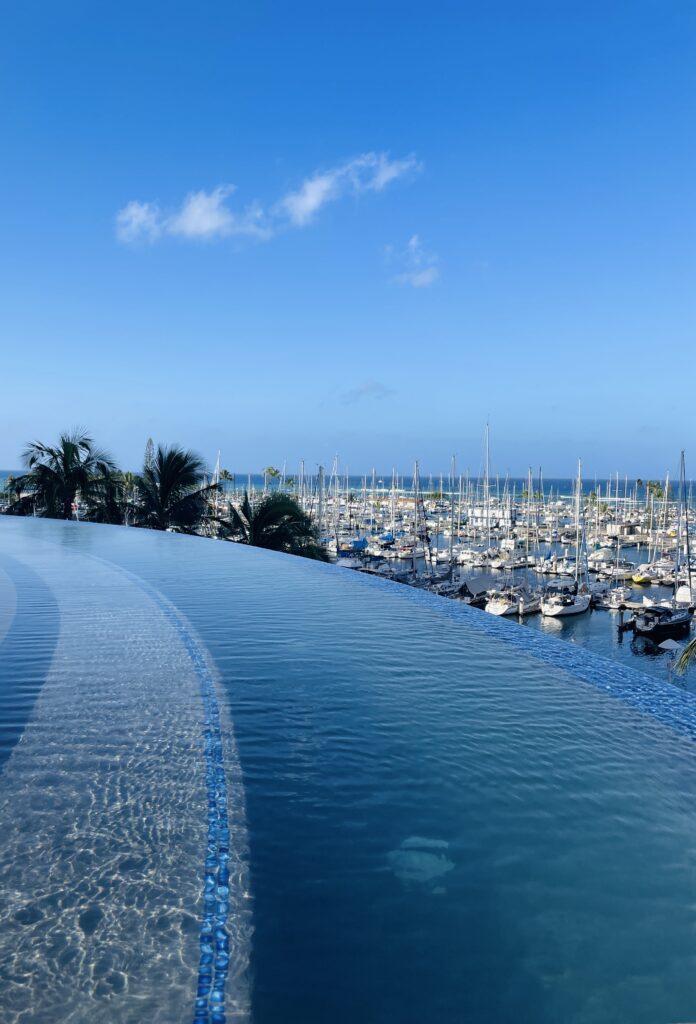
Living on Oʻahu has taught me that when and how you book your stay can make a big difference — not just in price, but in overall experience. While Oʻahu is a year-round destination, there are definite patterns in crowds, weather, and even surf conditions that can shape your trip.
Related: Best Time to Visit O‘ahu: Weather, Crowds & Culture
Here are a few tips I always share with friends and readers planning their visit:
Best time to visit for good weather: From April to early June and September to early November, the island tends to be drier and less crowded. The winter months (especially December and January) bring bigger surf and more visitors, particularly around the holidays.
Booking early helps, especially for Ko Olina and North Shore stays. These areas have fewer hotel options than Waikīkī, and the best rooms go fast — sometimes months in advance for peak season.
Consider splitting your stay between areas. As I mentioned earlier, 3–4 nights in Waikīkī followed by a few days on the North Shore or in Ko Olina gives you the best of both worlds — city energy and resort relaxation.
Watch for resort and parking fees. Most Waikīkī hotels charge both, and Ko Olina properties often do too. It’s worth double-checking total costs before booking, as they can add $50–$100 per night to your stay.
Plan around traffic. Morning and evening rush hours between Honolulu and the west side can add serious drive time. If you’re staying in Ko Olina or the North Shore, plan early departures for excursions.
Check for local events and surf competitions. The North Shore gets especially busy during winter surf season, and hotels near Pipeline or Sunset Beach can fill up fast during events like the Vans Triple Crown.
If you’re booking directly through hotel sites, sign up for loyalty programs or email lists — they often offer Hawaiʻi-specific discounts or perks like free breakfast or resort credit. And if you’re flexible with your travel dates, midweek stays can save quite a bit compared to weekends.
Ultimately, the best time to visit Oʻahu is when you can slow down enough to enjoy it. Whether that’s watching the sunset over the Ko Olina lagoons or grabbing shave ice after a North Shore beach day, timing your stay right helps you experience the island at its best.
Final Thoughts: My Recommendation as a Local
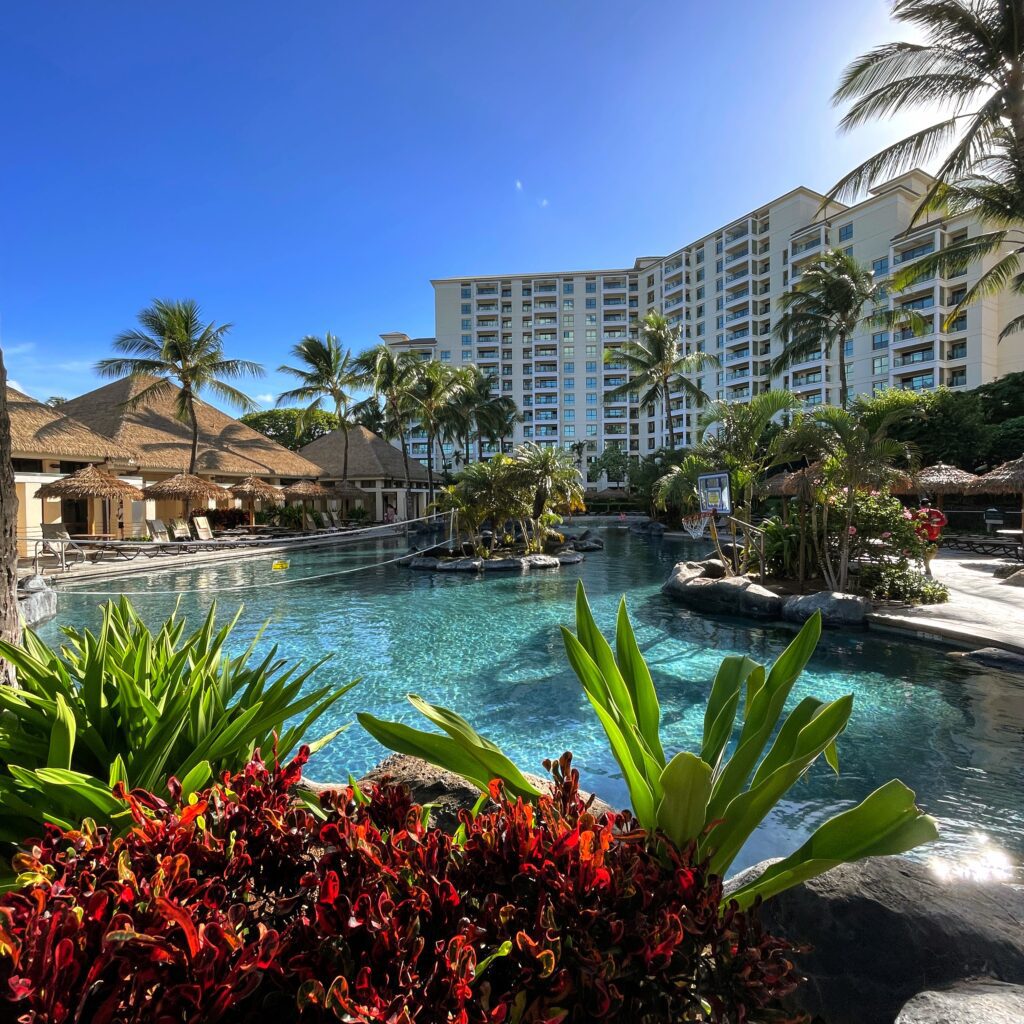
After years of exploring every corner of Oʻahu — from sunset surf sessions in Waikiki (I used to have a beach locker for my board) to sunset dinners in Ko Olina — I’ve learned that there’s no single “best” place to stay. It really depends on what kind of traveler you are and what you want your Hawaiʻi experience to feel like.
If it’s your first time visiting, I always suggest starting in Waikīkī. It’s central, full of energy, and makes exploring the rest of the island easy. For families, honeymooners, or anyone who wants a true resort-style escape, Ko Olina delivers relaxation with beautiful beaches and calm lagoons. And if you’ve been to Oʻahu before or want a more local, off-the-grid feel, the North Shore is unforgettable — the kind of place that captures your heart and slows down time.
If you’re still narrowing down your options, check out some of my Oʻahu hotel reviews for more details on specific properties. And if you’re planning to visit other islands too, my full guide to the best places to stay in Hawaiʻi can help you compare what each island offers.

